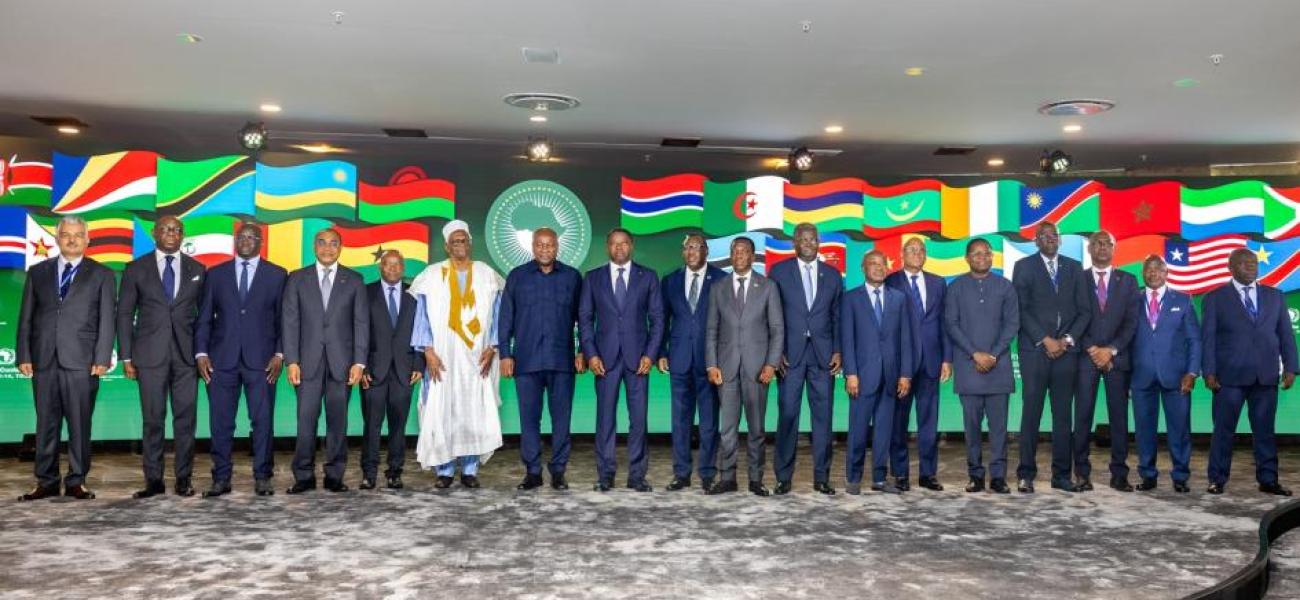At the African Union’s first Debt Conference held in Lomé, Togo, in May 2025, leaders and experts proposed concrete reforms to address rising debt distress across the continent.
With several African countries facing economic challenges and with outdated global mechanisms slowing relief, the AU is advancing new solutions: from enforcing creditor participation to launching a Pan-African Credit Rating Agency to ensure debt supports, rather than hinders, Africa’s development goals.
The conference brought together heads of state, finance ministers, central bank governors, multilateral institutions, and civil society representatives to address Africa's growing debt crisis and chart a path towards fiscal sustainability.
As of 2024, twenty-three African countries were experiencing financial distress and three have either defaulted or sought formal debt restructuring.
Taken together, African countries owe more than $1.8 trillion. A large share of this is owed to private creditors who are not obligated to participate in international debt relief frameworks.
African Credit Rating Agency
Stakeholders at the conference focused on solutions to strengthen debt governance and improve transparency.
Emphasis was placed on aligning debt practices with national development objectives.
"This is a pivotal moment for the continent," said Moses Vilakati, acting AU Commissioner for Economic Development. "We must build robust national frameworks for debt management, enhance transparency, and ensure all borrowing supports transformative and inclusive development."
The conference proposed a range of initiatives, including the following:-
Creation of an African Credit Rating Agency,
Broader use of blended finance and green bonds, and
Enhanced legislative oversight of public borrowing.
These proposals aim to equip African countries with tools to manage their debt portfolios more effectively and attract sustainable investment.
G20 debt framework
A central focus of the conference was the evaluation of the G20’s Common Framework for Debt Treatment.
Introduced in 2020, the framework was designed to coordinate debt relief for low-income countries, particularly in the wake of the COVID-19 pandemic. However, its implementation has faced delays and limited participation.
Zambia applied for the framework in early 2021 but concluded a restructuring deal only in March 2024. Ghana reached a draft agreement in January 2024 to restructure $5.4 billion in debt. Ethiopia, meanwhile, has secured temporary suspensions but awaits a final agreement.
One of the key limitations of the common framework, the conference pointed out, is its voluntary nature. Private creditors, who account for approximately 43% of Africa's external debt, are not required to participate.
This has led to incomplete and protracted restructuring processes.
"Africa must assert its voice in global financial discussions," said Zambian President Hakainde Hichilema. "We need reforms that acknowledge our unique economic trajectories and support sustainable growth."
Another factor complicating debt resolution is the evolving creditor landscape.
The development agenda
The discussions in Lomé also highlighted how debt challenges intersect with the AU’s development agenda.
"We must ask ourselves what truly constitutes sustainable debt," said Togo’s President Faure Gnassingbé. "Many African countries face competing pressures, servicing debt while addressing health, education, and security needs. Without peace, there can be no development."
High debt servicing costs limit the ability of governments to invest in critical areas such as education, healthcare, infrastructure, and climate resilience.
The AU’s six G20 priorities, ranging from advancing Agenda 2063 to expanding trade and improving creditworthiness, are closely tied to the continent’s fiscal health.
Reforms
To enhance the effectiveness of global debt mechanisms, the AU proposed targeted reforms to the common framework. These include:
Requiring the participation of private creditors
Establishing enforcement mechanisms for coordinated action
Streamlining negotiation processes
Creating incentives for timely cooperation
Alongside these proposals, African institutions are exploring homegrown solutions. The proposed Pan-African Credit Rating Agency, for instance, could offer alternative assessments tailored to African contexts, potentially reducing borrowing costs and improving access to capital markets.
"Credit rating methodologies must evolve to reflect the structural progress and reform potential of African economies, not merely penalize volatility we did not create," said Ghanaian President John Dramani Mahama.
For the AU, the Lomé Conference signalled a collective move toward addressing Africa's debt burdens through reform and cooperation. Leaders presented practical strategies to align debt management with long-term development objectives and fiscal stability.





